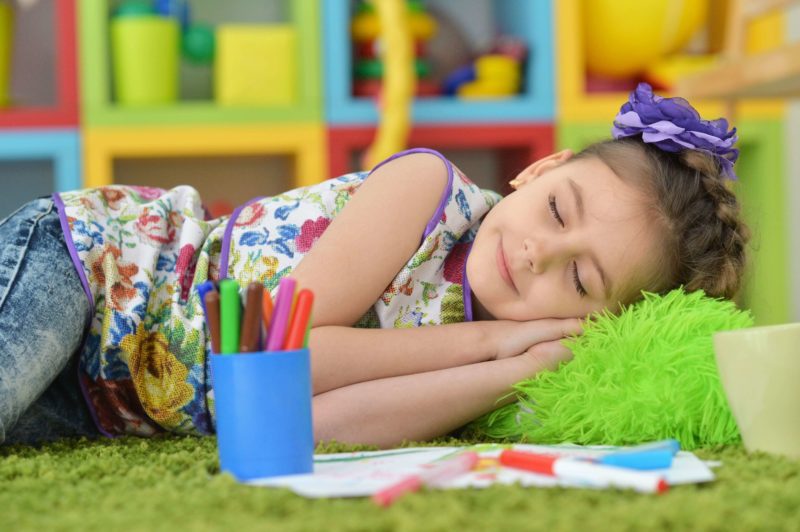Sleep is an essential part of your child’s daily routine and key to ensuring your child has a healthy lifestyle. Sleep promotes physical, cognitive, social and emotional development and directly links to children’s mental health, behaviour and attention. Sleep difficulties can have a significant effect, not only on your child’s wellbeing but on the entire family.
If you find it challenging to get your child to have enough sleep, you are not alone! It is estimated that 1 in 4 Australian children do not get the recommended amount of sleep. Furthermore, sleep difficulties are even more common in children with neurodevelopmental delays.
So how much sleep should your child be getting every night?
The recommended amount of sleep varies depending on your child’s age, with younger children requiring more sleep each night.
- Children aged 1-2 years are recommended to have 11-14 hours of sleep each night.
- Children aged 3-5 years are recommended to have 10-13 hours of sleep each night
- Children aged 6-12 years are recommended to have 9-12 hours of sleep each night
- Children aged 13-18 years are recommended to have 8-10 hours of sleep each night.
If you are having trouble getting your child to meet their recommended hours of sleep, here are some things to consider!
Sleep Environment
The environment in which your child sleeps can impact their sleep quality and duration. For example, some children can be susceptible to noise or light when sleeping. Think about your child’s sleep preferences and the environment in which they are sleeping. If your child is sensitive to noise when sleeping, a white noise machine may help mask disruptive sounds in the background. If your child has difficulty falling asleep or is easily disrupted by light, use dark curtains to block out natural light, and cover the gap under the door frame to block light from outside the room. Another environmental consideration is temperature. Colder internal body temperatures promote the release of melatonin required to sleep. Experts recommend keeping the bedroom temperature to around 18-21 degrees Celsius and dressing children in breathable cotton pyjamas at night.
Sleep Scheduling
Children require consistency and routine, and this is no different for their sleep. Children benefit from sleeping and waking up at similar times every day. Although this may not be entirely possible with the variability of your day to day lives, children must be kept to a regular sleep routine for the majority of the week. School holidays can be especially tricky to keep to a regular sleep routine. Make sure you spend a few days before the start of school returning your child to their regular sleep patterns.
Sleep Practices
The few hours leading up to bedtime can be crucial in determining your child’s sleep quality. Here are a few tips to ensure that they get a good night sleep each night:
- Limit foods and drinks that contain sugar or caffeine at night
- Avoid screen time 1-2 hours before bedtime
- Only let your child use their bed for sleeping. Not reading or homework or games and so on. This helps to make them associate their bed with sleep.
- Engage in a “wind-down” routine 30 minutes before bedtime. Dim the lights in the house, give your child a warm bath or engage in a quiet activity (for example, reading a book).
- Address any fears with your child to create a safe and comfortable space. If simple reassurance is not enough, try making a “special toy” to guard against monsters or spray the room with “monster spray” before bed.
- Try deep breathing (or meditation for older children) before bed to calm their body.
- Engage your child in exercise and physical activity during the day but limit a few hours before bedtime
If you still have concerns regarding your child’s sleep, please seek their GP or paediatrician advice.


